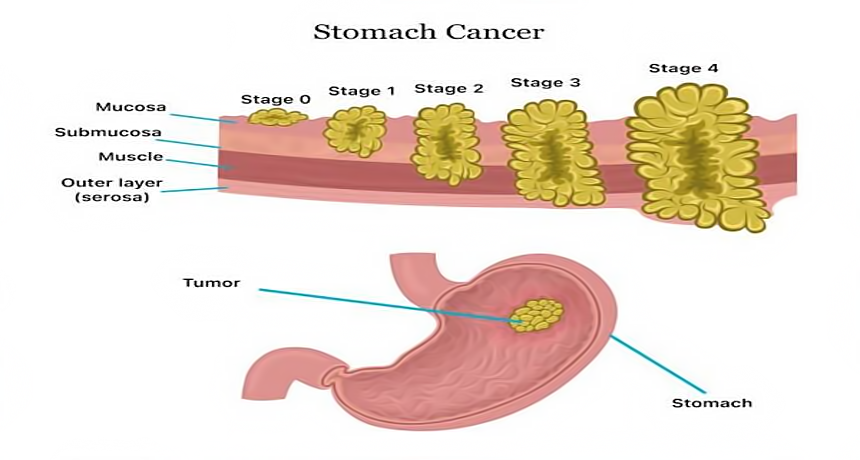- Chennai, India
- +044 4295 6777
- ayyapps1@gmail.com
Stomach cancer, or gastric cancer, is a buildup of abnormal cells that form a mass in part of the stomach. It can develop in any part of the stomach.

There are some less common and rare types of stomach cancer which include:
The rest of this leaflet only discusses adenocarcinoma of the stomach.
Countries such as Japan, where people eat a lot of salt, pickled and smoked foods, have a high rate of stomach cancer.
Smokers have a higher rate of stomach cancer compared with people who do not smoke
Long-term infection of the stomach lining with a bacterium called Helicobacter pylori seems to lead to a slightly higher risk of stomach cancer. (This infection is very common in the UK, and most people with H. pylori infection do not develop stomach cancer. See separate leaflet called 'Helicobacter Pylori and Stomach Pain'.).
Gender Stomach cancer is twice as common in men as in women.
If you have had part of your stomach removed in the past for any reason. For example, to treat a stomach ulcer or some other condition.
Family history For some cases, stomach cancer may run in the family. However, most cases of stomach cancer do not run in families and are not inherited.
When a stomach cancer first develops and is small, it usually causes no symptoms. Some do not cause symptoms until they are quite advanced. Initial symptoms may include:
You may pass blood out with your faeces (motions). You may not notice bleeding if small amounts of blood pass out with your faeces. A lot of bleeding from the stomach can turn your faeces black.
As the cancer grows in the stomach, symptoms may become worse and may include:
For further more details, Contact Dr.S.Ayyappan has specialised in Peritoneal Surface Malignancies performed many number of Cytoreductive and HIPEC Surgeries for diseases which are considered as inoperable.